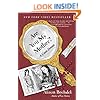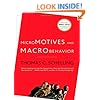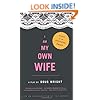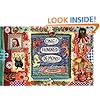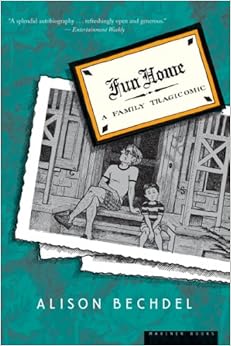
Fun Home: A Family Tragicomic
and over one million other books are available for Amazon Kindle. Learn more


Flip to back
Flip to front


Fun Home: A Family Tragicomic Paperback – June 5, 2007

$8.44
FREE Shipping on orders over $35.
In Stock.
Ships from and sold by Amazon.com.
Gift-wrap available.
NO_CONTENT_IN_FEATURE
Start reading Fun Home: A Family Tragicomic on your Kindle in under a minute.
Don't have a Kindle? Get your Kindle here, or download a FREE Kindle Reading App.
Don't have a Kindle? Get your Kindle here, or download a FREE Kindle Reading App.
Browse in Books with Buzz and explore more details on selected titles, including the current pick, "Neil Patrick Harris: Choose Your Own Adventure," an engaging, interactive dive into the versatile actor's life (available in hardcover and Kindle book).
Product Details
Would you like to update product info or give feedback on images?.
|
Editorial Reviews
From Publishers Weekly
Starred Review. This autobiography by the author of the long-running strip, Dykes to Watch Out For, deals with her childhood with a closeted gay father, who was an English teacher and proprietor of the local funeral parlor (the former allowed him access to teen boys). Fun Home refers both to the funeral parlor, where he put makeup on the corpses and arranged the flowers, and the family's meticulously restored gothic revival house, filled with gilt and lace, where he liked to imagine himself a 19th-century aristocrat. The art has greater depth and sophistication that Dykes; Bechdel's talent for intimacy and banter gains gravitas when used to describe a family in which a man's secrets make his wife a tired husk and overshadow his daughter's burgeoning womanhood and homosexuality. His court trial over his dealings with a young boy pushes aside the importance of her early teen years. Her coming out is pushed aside by his death, probably a suicide. The recursively told story, which revisits the sites of tragic desperation again and again, hits notes that resemble Jeanette Winterson at her best. Bechdel presents her childhood as a "still life with children" that her father created, and meditates on how prolonged untruth can become its own reality. She's made a story that's quiet, dignified and not easy to put down. (June)
Copyright © Reed Business Information, a division of Reed Elsevier Inc. All rights reserved. --This text refers to the Hardcover edition.
Copyright © Reed Business Information, a division of Reed Elsevier Inc. All rights reserved. --This text refers to the Hardcover edition.
From Bookmarks Magazine
That Alison Bechdel kept a childhood journal made Fun Home a perhaps more true-to-life project than it would have been if she'd relied on memory alone. A powerful graphic novel-memoir, Fun Home documents Bechdel's childhood experiences and coming-of-age as a woman and lesbian. At its center lies her heartbreaking relationship with her distant father, which produces emotionally complex and poignant reflections and clean, bitonal images. While detractors cited confusing chronology and repetition of events, literary buffs enjoyed the challenging references to Albert Camus, James Joyce, and classical mythology. In the end, Fun Home "is an engrossing memoir that does the graphic novel format proud" (New York Times).
Copyright © 2004 Phillips & Nelson Media, Inc. --This text refers to the Hardcover edition.
More About the Author
ALISON BECHDEL has been a careful archivist of her own life and kept a journal since she was ten. Since 1983 she has been chronicling the lives of various characters in the fictionalized "Dykes to Watch Out For" strip, "one of the preeminent oeuvres in the comics genre, period" (Ms.). The strip is syndicated in 50 alternative newspapers, translated into multiple languages, and collected into a book series with a quarter of a million copies in print. Utne magazine has listed DTWOF as "one of the greatest hits of the twentieth century."
Related Media
Customer Reviews
Most Helpful Customer Reviews
151 of 158 people found the following review helpful
By
M. J. Lowe
on July 27, 2006
Format: Hardcover
4 Comments
Sending feedback...
FUN HOME A FAMILY TRAGICOMIC is the latest work from the highly skilled, insightful, neurotic and wry-humored pen of Alison Bechdel, best known for her "Dykes to Watch Out For" comic strip. (One of the longest-running queer comic strips, "Dykes to Watch Out For" is over 20 years old, has been syndicated in hundreds of papers, released in over 10 books, and is available online via the author's website.) FUN HOME is Bechdel's graphically rendered account of growing up in rural Pennsylvania in the 1960s and 70s with a particular focus on influences of her father`s life and death.
Beginning with some of Bechdel's earliest memories of her father, readers meet a man who was an intelligent, emotionally distant yet volatile, narcissistic perfectionist who struggled with secrets. Trapped in the town not only of his youth but that of his ancestors for several generations, Bechdel`s father worked in the family business, a funeral home (known in the family as the "Fun Home") established by her great-grandfather in the 19th century. In addition to his interest in local history and historic preservation, Bechdel's father was a closeted gay (or bisexual) man who had a string of affairs, primarily with younger men, throughout his life.
Divided into seven chapters, each of which deals with particular themes in her childhood, FUN HOME contains a strong emphasis on literary references. Chapters weave back and forth in time, revealing aspects of Bechdel's childhood and details of her father's death. Books and literature were an important influence in Bechdel's life growing up. Her father taught English Literature at the local high school while her mother studied theater and performed in community plays.Read more ›
Beginning with some of Bechdel's earliest memories of her father, readers meet a man who was an intelligent, emotionally distant yet volatile, narcissistic perfectionist who struggled with secrets. Trapped in the town not only of his youth but that of his ancestors for several generations, Bechdel`s father worked in the family business, a funeral home (known in the family as the "Fun Home") established by her great-grandfather in the 19th century. In addition to his interest in local history and historic preservation, Bechdel's father was a closeted gay (or bisexual) man who had a string of affairs, primarily with younger men, throughout his life.
Divided into seven chapters, each of which deals with particular themes in her childhood, FUN HOME contains a strong emphasis on literary references. Chapters weave back and forth in time, revealing aspects of Bechdel's childhood and details of her father's death. Books and literature were an important influence in Bechdel's life growing up. Her father taught English Literature at the local high school while her mother studied theater and performed in community plays.Read more ›
Thank you for your feedback.
If this review is inappropriate, please let us know.
Sorry, we failed to record your vote. Please try again
74 of 81 people found the following review helpful
By
Edward Aycock
on May 29, 2006
Format: Hardcover
Comment
Sending feedback...
Wow. I've been trying to figure out how to start this review, but every opening sounds like it's belittling: "Proving that she can do more than her comic strip ..." or "Moving beyond her "Dykes"..." does a great disservice to Bechdel and the comic strip world she has been superbly chronicling for the past twenty-odd years. Bechdel isn't moving beyond anything here; she's just done something different.
It shouldn't come as any surprise that Bechdel is capable of producing such a great work -- she has proved time and again in both her comic strip and other media (her hilarious and much missed wall calendars from the 90s) that she can blend words, drama and humor as sharply as any. The surprise to me here is just how deeply Bechdel allows us to glimpse into her life.
"Fun Home" is no easy narrative: the story of Bechdel's family and especially her difficult father bends, buckles and then turns to reveal more truth as each chapter goes by. The art and detail are so well done that I didn't feel as though I was looking at pen and ink drawings but real photos reminiscent of Italian "fumetti" comics. When the book ended, I felt the need to go over it again and put the pieces together like a puzzle.
I first discovered Bechdel when I was a junior in college 15 years ago and I've been following her work ever since. Part of me wants to selfishly keep her as one of my own, somebody that I discovered before the mainstream and after I died, friends and family would find her books among my collection and think, "This is brilliant, if only we'd read her years ago!"
I'll probably spend the next few months saying, "You liked 'Fun Home'? Amateur! *I've* been reading Bechdel since 1991." But this book (and Bechdel's work in general) deserves a wide audience and all the success it gets.
Bravo Alison, bravo.
It shouldn't come as any surprise that Bechdel is capable of producing such a great work -- she has proved time and again in both her comic strip and other media (her hilarious and much missed wall calendars from the 90s) that she can blend words, drama and humor as sharply as any. The surprise to me here is just how deeply Bechdel allows us to glimpse into her life.
"Fun Home" is no easy narrative: the story of Bechdel's family and especially her difficult father bends, buckles and then turns to reveal more truth as each chapter goes by. The art and detail are so well done that I didn't feel as though I was looking at pen and ink drawings but real photos reminiscent of Italian "fumetti" comics. When the book ended, I felt the need to go over it again and put the pieces together like a puzzle.
I first discovered Bechdel when I was a junior in college 15 years ago and I've been following her work ever since. Part of me wants to selfishly keep her as one of my own, somebody that I discovered before the mainstream and after I died, friends and family would find her books among my collection and think, "This is brilliant, if only we'd read her years ago!"
I'll probably spend the next few months saying, "You liked 'Fun Home'? Amateur! *I've* been reading Bechdel since 1991." But this book (and Bechdel's work in general) deserves a wide audience and all the success it gets.
Bravo Alison, bravo.
Thank you for your feedback.
If this review is inappropriate, please let us know.
Sorry, we failed to record your vote. Please try again
28 of 32 people found the following review helpful
By
I. Sondel
VINE VOICE on July 9, 2006
Format: Hardcover
Comment
Sending feedback...
From Alison Bechdel, author of the comic strip "Dykes to Watch Out For," comes a memoir of coming out and coming to terms with both the life and death of her closeted father. The funny "gay" memoir seems to be the latest trend, and I'll admit that I approached this book with more than a little trepidation. However, "Fun Home" has proven a happy surprise, a unique and first rate comic work by a truly serious artist.
It took me awhile to set down and attempt to put into words what I found so special about this book. First, this is a graphic book (a "comic" book if you will), and one that is equal parts graphic and comic in its depiction of a very real American family. Being raised in a funeral home in small town America could prove a challenge for anyone. Being an adolescent girl awakening to her own lesbianism with a closet case father who is both your High School English teacher and the local funeral director, is the stuff of great literature.
The author has an acute sense of the absurd, and an unparralleld ability to communicate life's little ironies. Without ever losing affection for her emotionally remote parents, Bechdel cuts to the heart of the matter and draws them warts and all. "Fun Home" is a genuine marvel, a truly tragicomic memoir and one of the highlights of the publishing year thus far. Don't miss it.
It took me awhile to set down and attempt to put into words what I found so special about this book. First, this is a graphic book (a "comic" book if you will), and one that is equal parts graphic and comic in its depiction of a very real American family. Being raised in a funeral home in small town America could prove a challenge for anyone. Being an adolescent girl awakening to her own lesbianism with a closet case father who is both your High School English teacher and the local funeral director, is the stuff of great literature.
The author has an acute sense of the absurd, and an unparralleld ability to communicate life's little ironies. Without ever losing affection for her emotionally remote parents, Bechdel cuts to the heart of the matter and draws them warts and all. "Fun Home" is a genuine marvel, a truly tragicomic memoir and one of the highlights of the publishing year thus far. Don't miss it.
Thank you for your feedback.
If this review is inappropriate, please let us know.
Sorry, we failed to record your vote. Please try again
36 of 44 people found the following review helpful
By
Robert Beveridge
HALL OF FAMEVINE VOICE on December 20, 2006
Format: Hardcover
1 Comment
Sending feedback...
Alison Bechdel, Fun Home: A Family Tragicomic (Houghton Mifflin, 2006)
I'm somewhat impressed that I somehow managed to read one of the New York Times' Notable Books of 2006 while it's still 2006, and before they named it as a notable book. Completely unlike me. But there it is. My closet trendiness is finally leaking out.
And as tempting as it is to use that paragraph as a segue into a review of Fun Home, I can't figure out a way to do it that isn't monstrously cheesy, so I'll leave it where it stands.
As sick of the whole memoir thing as I am, there are still a few that generate enough buzz from the trustworthy to merit picking up while they're still somewhat fresh. Fun Home has been one of them since months before it came out, and for the most part, the buzz seems warranted. (The part that's not "most" is because, well, it's a memoir, and in today's climate, where everyone from the Bush's pet dog to the janitor of the local brothel is publishing a memoir, publishing a memoir in and of itself is cause for skepticism.) Bechdel takes her childhood journal and reworks it with an adult sensibility, but doesn't throw out the awkward, painful bits. Or, if she did, she left enough of them in to make it scan.
At its heart, Fun Home is the story of the conflict between Bechdel and her father, both of whom were struggling with sexuality issues during Bechdel's adolescence; she eventually came out, while her father stayed closeted until his death (whether accident or suicide, a question unanswered to this day).Read more ›
I'm somewhat impressed that I somehow managed to read one of the New York Times' Notable Books of 2006 while it's still 2006, and before they named it as a notable book. Completely unlike me. But there it is. My closet trendiness is finally leaking out.
And as tempting as it is to use that paragraph as a segue into a review of Fun Home, I can't figure out a way to do it that isn't monstrously cheesy, so I'll leave it where it stands.
As sick of the whole memoir thing as I am, there are still a few that generate enough buzz from the trustworthy to merit picking up while they're still somewhat fresh. Fun Home has been one of them since months before it came out, and for the most part, the buzz seems warranted. (The part that's not "most" is because, well, it's a memoir, and in today's climate, where everyone from the Bush's pet dog to the janitor of the local brothel is publishing a memoir, publishing a memoir in and of itself is cause for skepticism.) Bechdel takes her childhood journal and reworks it with an adult sensibility, but doesn't throw out the awkward, painful bits. Or, if she did, she left enough of them in to make it scan.
At its heart, Fun Home is the story of the conflict between Bechdel and her father, both of whom were struggling with sexuality issues during Bechdel's adolescence; she eventually came out, while her father stayed closeted until his death (whether accident or suicide, a question unanswered to this day).Read more ›
Thank you for your feedback.
If this review is inappropriate, please let us know.
Sorry, we failed to record your vote. Please try again
